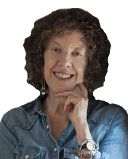Sexual Abuse
Can an Adult Survivor of Sexual Abuse Become a Good Mom?
Should a survivor of incest and abuse have children?
Posted May 19, 2014
I’ll never forget the fifty-two year old woman who sought my advice when she learned that her son’s fiancée had a history of incest.
Speaking for her husband as well, she said: “We have read about the psychological makeup of adult incest survivors, so we question what kind of mother this woman can possibly be. We want only the best for our son and wonder if therapy can help people totally get over a trauma so that it never affects them again.”
EMDR, in particular, is a therapy that often provides rapid relief of suffering for trauma victims. But we never “get over” trauma so entirely that it no longer affects us. No amount of therapy or recovery brings us to the place where it’s as if painful events of the past never happened.
Nor would we necessarily want this to be so, because we wouldn’t be who we are. So, yes, this woman’s prospective daughter-in-law will be affected by her experience of incest, and by everything else that has happened in her life. But beyond having endured and survived a terrible trauma, this fact says very little about what is special or limited about her.
I’ve worked with any number of severely abused women who are wonderful mothers, and who show an extraordinary capacity for creativity, love, and joy, just as I’ve worked with women who report no abuse yet lack these positive attributes. Sometimes the universe throws a curveball to a child and it leads to something creative or beautiful or miraculous in this person, something that benefits us all.
This being the case, who knows what kind of mother this daughter-in-law may become. (And you, dear reader, should disbelieve any expert, no matter how credentialed, who predicts your future with certainty, or even with a great deal of confidence.)
It isn't my intention to minimize the profound effect of incest, or the concern this woman felt for the future of her hypothetical grandchildren. Rather I wanted to encourage her to get to know her daughter-in-law as the complex person she surely is, without making assumptions about her capabilities and her future behavior based on her past history.
The human spirit is remarkable, unpredictable, and lawless. All parents have strengths and weaknesses. As I say in The Mother Dance, we don’t have a clue what our children will evoke in us until after we have them.


